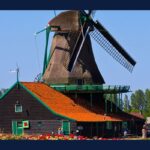The Netherlands, a country renowned for its progressive values and commitment to individual rights, deeply understands this sentiment. Recognizing the immeasurable value of family unity and its emotional anchoring, the Dutch government has instituted policies to help expats and international couples reunite with their families.
Whether you’re a professional seeking to bring your family to join you, or part of an international couple yearning to start a life together in this beautiful nation, this article aims to guide, reassure, and provide clarity on the process of family reunification in The Netherlands.
Key Takeaways
- Family reunification in The Netherlands is a supportive and structured process that values the sanctity of family bonds.
- Eligibility criteria are comprehensive, ensuring the system is fair and well-defined.
- Documentation is key; ensure you have all required papers for a seamless process.
- Once in The Netherlands, family members enjoy a plethora of rights, ensuring their well-being and integration.
- The benefits of reunification are manifold, impacting emotional, social, and economic spheres.
Why Consider Family Reunification in The Netherlands?
The Netherlands, often lovingly referred to as the heart of Europe, has long been a beacon for those seeking a harmonious blend of tradition and modernity. Its serene landscapes, robust infrastructure, and diverse culture make it a haven for individuals from around the globe.
But beyond its picturesque beauty and thriving economy, The Netherlands stands out for another very special reason: its deep-rooted commitment to family values.
Embracing Unity
The Dutch government doesn’t just acknowledge the importance of family; it cherishes and fosters it. When we speak of family, we’re not just referring to a unit that shares a household, but to the bonds, memories, and shared experiences that make life richer.
The Dutch philosophy emphasizes the family unit’s well-being, believing that a united family enhances individual happiness, community strength, and societal harmony.
Supportive Infrastructure
For expats and international couples, The Netherlands presents a welcoming and nurturing environment. The country boasts world-class educational institutions for children, comprehensive healthcare facilities, and a plethora of community centers and groups that facilitate seamless integration. Every facet of Dutch society, from its policies to its people, seems to echo the sentiment: “You and your family are welcome here.”
Empathy Beyond Borders
Dutch society is a melting pot of cultures, traditions, and stories from across the globe. This cultural mosaic has fostered a national ethos of understanding and empathy.
Your story, journey, and aspirations to reunite with your loved ones resonate deeply with the Dutch spirit. It’s not just about policies and procedures; it’s about a nation that genuinely understands the emotions, challenges, and hopes of seeking family reunification.
Eligibility Criteria
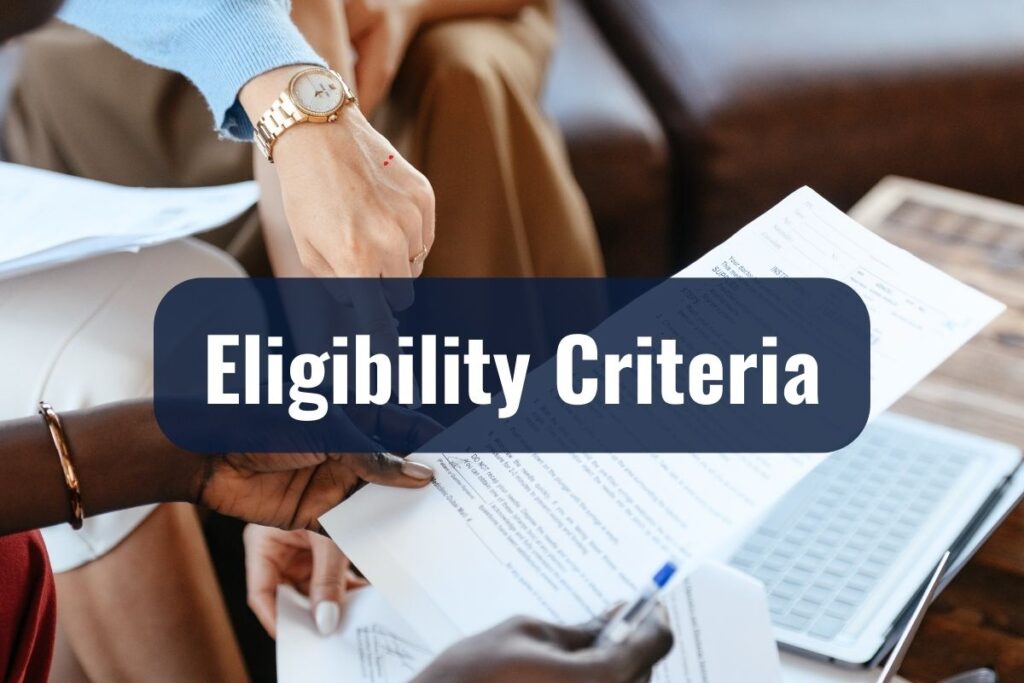
Navigating the intricacies of immigration and reunification policies can often feel overwhelming. However, The Netherlands, in its dedication to bringing families together, has streamlined the criteria for eligibility.
While there are specifics to be met, the overarching philosophy is clear: facilitating the reunion of loved ones.
1. The Sponsor’s Role: If you already reside in The Netherlands and wish to bring your family over, you are considered the ‘sponsor’. The Dutch authorities look for certain aspects regarding the sponsor:
- You must have a valid residence permit.
- You need to have a sufficient and long-term income. This is to ensure that you can adequately support your arriving family members.
- A commitment to the integration process, which might involve having completed or being in the process of an integration course.
2. Relationships Recognized: The Netherlands is inclusive in its definition of family. Here’s who you can bring:
- Spouse or Registered Partner: Your spouse or partner must be 21 years or older. If you’re not officially married, a registered partnership or proof of a long-term and exclusive relationship is necessary.
- Minor Children: Biological or adopted children under the age of 18 can be brought to The Netherlands. They should be part of the family unit and be under your or your spouse’s care.
- Other Relatives: In exceptional cases, other family members might be considered for reasons of family reunification or formation. These are assessed on a case-by-case basis, considering unique situations where separation might cause undue hardship.
3. Living Arrangements: You must have appropriate accommodations for your family members. This ensures their comfort and well-being upon arrival.
4. Integration Requirement: Family members aged 18 or over might need to pass a basic Dutch language and civic integration examination before coming to The Netherlands. This is more than just a procedural step; it’s a stepping stone to feeling at home in your new surroundings.
Application Process
Taking the first steps towards reuniting with your loved ones is a journey paved with hope, anticipation, and, understandably, a fair share of apprehensions. The Netherlands, aware of this process’s emotional weight, has endeavored to create a clear and systematic application process.
1. Starting Point: The Application
The sponsor, already residing in The Netherlands, typically initiates the application on behalf of the family member(s).
Applications can be submitted online, or through the local Immigration and Naturalisation Service (IND) desk. Ensure you have all the required documents in place. This initial stage sets the tone for the rest of the process.
2. Document Verification
Once the application is submitted, the IND will verify the documents. This is crucial, as the authenticity and accuracy of the documents play a significant role in ensuring a smooth process.
3. Decision Period
The IND usually takes a decision within 90 days of application, though this period might vary based on the volume of applications or any complexities in individual cases.
We understand that waiting can be anxiety-inducing. It’s essential to remain patient and optimistic during this phase. Remember, it’s a system built to assist, not hinder, your reunion.
4. Notification
Upon reaching a decision, the IND will notify the sponsor. If the application is approved, your family member(s) may then collect their MVV (provisional residence permit) if required, from the Dutch embassy or consulate in their home country.
5. Arrival & Residence Permit
Once in The Netherlands, family members should make an appointment with the IND to provide biometric information. Subsequently, they’ll receive their residence permit.
6. Integration
After arriving, some family members may need to embark on an integration process, which includes language lessons and understanding Dutch society better. Embrace this as a beautiful learning curve, enriching the transition into Dutch life.
Documents Required
In the harmonious dance of reuniting families, paperwork might sometimes feel like a necessary, albeit slightly cumbersome, step. Yet, these documents, in all their precision and detail, are the tangible proof of the bonds and ties that you hold dear. They’re not just sheets of paper, but affirmations of relationships and memories.
1. Proof of Relationship
For Spouses/Partners: Marriage certificate or proof of registered partnership. If not married, you’d need evidence of your long-standing relationship, like photographs, communication records, or joint travels.
For Children: Birth certificates confirming the names of the parents. For adopted children, adoption papers are essential.
2. Passport Copies
Clear and valid copies of the passport of the family member wishing to join you in The Netherlands.
3. Proof of Income
The sponsor will need to furnish documents that prove a steady and sufficient income. This can be employment contracts, recent payslips, or bank statements.
4. Integration Exam Results (if applicable)
If the family member (aged 18 or over) has taken a civic integration examination, a copy of the results will be required.
5. Housing Agreement
A copy of your rental agreement or deed to prove you have adequate living arrangements for the incoming family member(s).
6. Health Insurance
Proof that the family member has health insurance that is valid in The Netherlands.
7. Additional Documents
In some unique situations, additional documents might be needed. These could pertain to special familial circumstances, health requirements, or any other nuances specific to your case.
Potential Challenges & Solutions
Every journey, especially one as heartfelt as reuniting with your family, might come with its own set of challenges. These challenges are merely bends in the road, not the end of your path.
Recognizing potential obstacles and preparing for them can make the journey smoother, reminding you that every step taken is a testament to love, dedication, and perseverance. Let’s explore some of these challenges and find ways to gracefully navigate through them.
Delayed Processing Times
Challenge:
Sometimes, the processing times can extend beyond the usual time frame due to a high volume of applications or specific complexities in certain cases.
Solution:
Maintain consistent communication with the Immigration and Naturalisation Service (IND) and regularly check the status of your application. Patience is key. Remember, it’s not a pause, but a momentary extension towards your reunion.
Document Verification Issues
Challenge:
There might be instances where documents are questioned for their authenticity or clarity.
Solution:
Ensure that you double-check all documents for their validity and clarity before submission. If there’s feedback from IND, address it promptly. Consider seeking guidance from expat support groups or legal experts familiar with the process.
Language and Integration Barriers
Challenge:
The integration requirement, especially the language component, might pose challenges for some family members.
Solution:
Embrace this as an opportunity. There are numerous courses, both online and offline, that can assist in learning Dutch. Engaging with local communities can also be immensely helpful.
Financial Hurdles
Challenge:
The process might come with expenses that can strain one’s budget.
Solution:
Plan ahead. Understand the potential costs involved and consider creating a dedicated savings fund for the reunification process. Look into organizations or groups that might offer financial guidance or assistance.
Emotional Strain
Challenge:
The waiting period, the anticipation, and the inherent uncertainties can be emotionally taxing.
Solution:
Lean on support systems, be it friends, fellow expats, or support groups. Remember the goal – the loving embrace of family. Seek counseling or community forums if needed. You’re not alone in this journey.
Rights of Family Members Once in The Netherlands
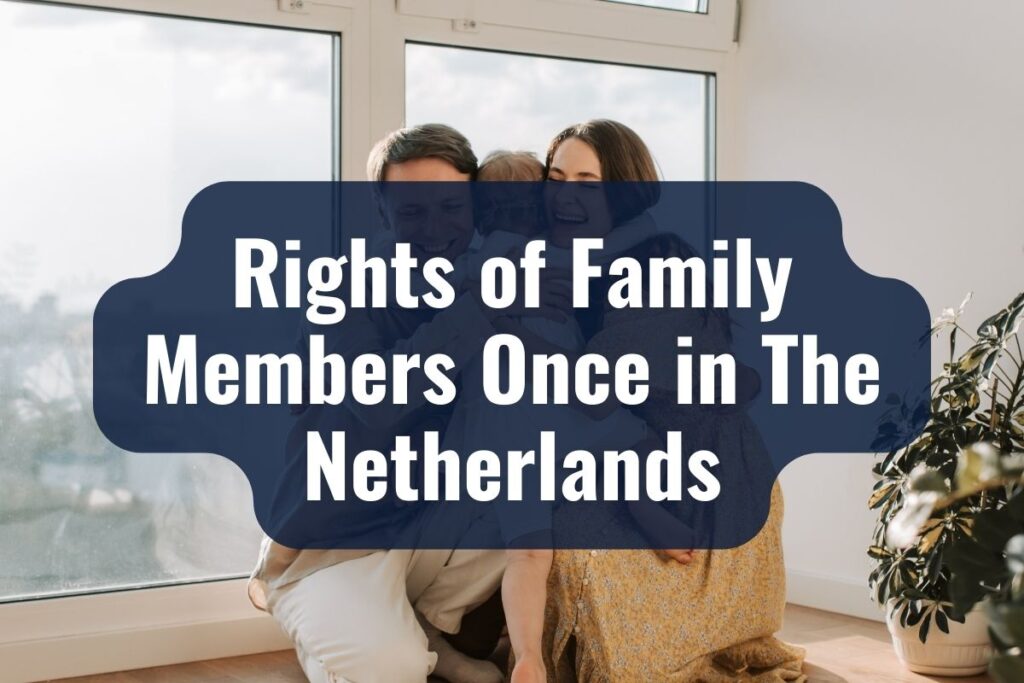
Reuniting with loved ones is a moment of unparalleled joy. The first embrace, the shared smiles, and the rekindling of old memories in a new homeland are precious beyond measure.
| Rights | Description |
| Access to Work | Family members can freely work, tapping into diverse job opportunities. |
| Healthcare Privileges | Enrollment in world-class healthcare systems with full facilities. |
| Educational Opportunities | Children are entitled to high-quality education. |
| Social Benefits | Potential for housing benefits, tax reductions, etc. |
| Freedom to Move and Reside | Autonomy to choose residence and move freely within the country. |
| Civic Participation | Engage in community activities and contribute to local life. |
| Long-term Residency | Over time, there’s potential for permanent residency or citizenship. |
The Netherlands, in its profound appreciation for the institution of family, ensures that this reunion is not just an emotional one, but also one where your family members are supported by a framework of rights, designed to make their transition and life here as fulfilling and comfortable as possible.
1. Access to Work
Family members who have been granted reunification status have the right to work in The Netherlands. They can embrace the vast sea of opportunities that the Dutch job market offers, further integrating them into the societal fabric.
2. Healthcare Privileges
Access to the world-class healthcare system in The Netherlands is a fundamental right. Ensure your family members are enrolled in a health insurance plan, and they can avail all the medical facilities and care that the Dutch residents do.
3. Educational Opportunities
Children have the right to education. The Netherlands offers a broad spectrum of schools, ensuring that young minds get the best platform to learn, grow, and thrive. They are entitled to the same quality of education as any Dutch child, fostering their holistic development.
4. Social Benefits
Depending on specific circumstances, your family may be eligible for certain social benefits or subsidies. These can range from housing benefits to tax reductions, all aimed at making life more comfortable and sustainable.
5. Freedom to Move and Reside
Family members have the right to move freely within The Netherlands and reside at a location of their choice, giving them the autonomy to carve out their niche in this beautiful nation.
6. Civic Participation
The Dutch society is a vibrant mosaic of cultures, traditions, and voices. Family members have the right to participate in local community activities, join groups, and contribute to the enriching diversity that defines The Netherlands.
7. Long-term Residency and Citizenship
With time, family members may be eligible to apply for long-term residency or even Dutch citizenship, further solidifying their bond with the nation.
Post-reunification, Life in The Netherlands is not just about co-existence; it’s about thriving, growing, and embracing the myriad opportunities this generous nation offers. It’s a testament to The Netherlands’ deep-rooted belief in the sanctity of family—understanding that when families are supported and nurtured, they, in turn, contribute richly to the community and society.
Financial Considerations
While emotionally rewarding, the journey of reuniting with your loved ones carries financial aspects that need attention. The Netherlands, in its intricate blend of history, art, and modernity, offers an exceptional quality of life; understandably, costs are associated with that.
Application Fees
Bringing a family member to The Netherlands involves application fees. It’s essential to check the current rates and budget for them. These fees cover the administrative aspects of the process and might vary based on the relation (spouse, child, etc.).
Housing and Living Expenses
The cost of living varies across Dutch cities. Major cities like Amsterdam or Rotterdam might have higher rental rates compared to smaller towns. Planning housing in advance and understanding the associated costs is vital.
Health Insurance
Ensuring that your family members have appropriate health insurance is not just a requirement but also a reassurance. Different insurance packages are available, each with varying premiums and coverage.
Education and Integration Courses
If there are children involved or family members who need integration courses, there will be associated costs. While public education is of high quality and largely funded, additional expenses like school trips or materials might exist.
Miscellaneous Expenses
These can range from transportation costs, phone bills, to entertainment and dining. Creating a monthly budget to keep track and ensure comfort without financial strain is helpful.
Savings and Investments
Consider opening a savings account for unforeseen expenses. The Netherlands also offers various investment opportunities that can be explored to ensure financial growth and security.
Social Benefits and Subsidies
On the brighter side, The Netherlands offers several subsidies and social benefits that can offset some costs. It’s worthwhile to explore these and check eligibility.
Benefits of Successful Family Reunification
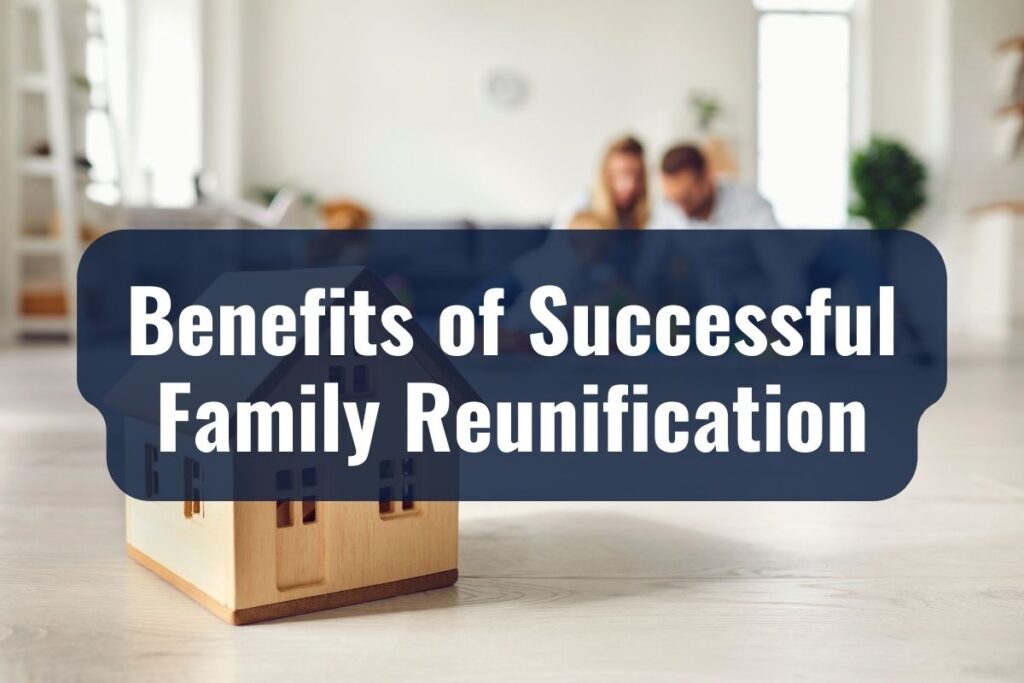
When families come together, it’s akin to scattered pieces of a puzzle finding their rightful place, creating a wholesome, beautiful picture. The process, while intricate, opens up a world where joy, shared experiences, and mutual growth abound.
Successful family reunification in The Netherlands is not just an end to the application process, but a blossoming beginning of numerous enriching experiences. Let’s delve into the myriad benefits that await you and your loved ones.
1. Emotional Wellness and Support
The joy of everyday moments, the reassurance of a familiar face, and the solace of shared memories. Being surrounded by loved ones fosters emotional well-being, providing an unwavering support system in both joyous and challenging times.
2. Cultural Enrichment
The Netherlands is a tapestry of cultures. Your family, with its unique traditions and practices, adds another rich layer to this tapestry, ensuring that while you integrate, you also enrich.
Everyday tasks, be it financial planning, child-rearing, or managing households, become lighter when responsibilities are shared among family members.
4. Fostering Stronger Community Bonds
Families tend to form stronger bonds with their local communities. This involvement can be through schools, neighborhood events, or cultural festivities, further integrating and strengthening communal ties.
5. Enhanced Opportunities for Children
Children who move to The Netherlands and are a part of a close-knit family often experience better adaptability, get exposed to a quality education system, and have opportunities to imbibe the multicultural ethos of the country.
6. Economic Growth
Family members who join the workforce contribute to the economy, and this combined economic effort can lead to an improved quality of life.
7. Strengthened Identity
While The Netherlands becomes a new home, the presence of family ensures that your cultural and familial identity is preserved and celebrated. It’s a balance of embracing the new while cherishing the old.
8. A Wider Social Circle
Families often bring with them extended relationships and connections. This widens one’s social circle, leading to enriched interactions, friendships, and a broader sense of community.
Additional Resources
The official source of all information related to immigration processes in The Netherlands. Their website provides detailed guidelines, frequently asked questions, and contact details for further queries. IND website.
A non-profit organization dedicated to helping expatriates in The Netherlands. They offer courses, counseling, and a wealth of information about living and thriving in the country. ACCESS Netherlands.
An English-language platform offering news, insights, and a plethora of guides about life in The Netherlands for expats. Their extensive articles range from practical advice on processes to lifestyle tips for newcomers. Expatica website.


